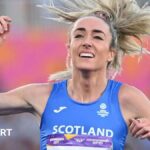A prince vanquishes a dragon and falls in love. A young girl named Violet works up the courage to give her classmate crush a valentine. Another girl fears she won’t get to see her Uncle Bobby as much after he gets married, but after spending a day with him and his fiancé, she realizes she’s just gaining a new member of her family.
All of these stories are found in children’s picture books, and none are particularly unusual. They touch on universal topics like bravery, friendship and family. But since the books feature LGBTQ protagonists — the prince falls in love with his knight, Violet’s classmate is a girl, Uncle Bobby is gay — they’re now at the center of Mahmoud v. Taylor, a Supreme Court case brought by parents who say that the books’ inclusion in public schools violates their parental rights and religious freedom. If, as seems likely, the Court’s conservative supermajority rules in favor of the parents, the case would notch a major win for the so-called “parental rights” movement — a pernicious right-wing crusade to undermine public education, church-state separation and children’s autonomy under the guise of fighting for individual civil liberties.
Though accounts differ on its exact origins, the parental rights movement can be traced back at least to 1925, when a biology teacher came under fire for teaching evolution in violation of Tennessee law. Other experts point to when parents used their own rights as a pretext to fight against the prohibition of child labor in the 1920s. (This same argument is cropping up again in 2025 as Florida Republicans push to weaken child labor laws.) And as the Red Scare swept the U.S. and public schools began racial integration in the 1950s, the parental rights argument flared again, with conservative parents monitoring schools for “communist infiltration” or pulling their children out of the desegregated public system.
What you will notice is that none of these instances has to do with actual civil rights — they’re all about enacting a particular right-wing vision for the country. The present-day parental rights movement builds upon this legacy. As the COVID-19 pandemic forced learning online in 2020, a new wave of parents began rallying under the banner of parental rights, fighting against school closures and vaccine mandates. Moms for Liberty, formed in 2021, is one of the leading instigators, muscling its far right members onto school boards and ballots.
While these groups decry government intervention on the level of public health, they simultaneously advocate for increased state control over education — banning books, cracking down on inclusive teachers and lesson plans, and pushing to undo diversity, equity and inclusion initiatives. Because, of course, Moms for Liberty and its allies are not fighting for the rights of parents who wish to support their children’s access to gender-affirming care. Nor are they supporting parents who help their children obtain abortions. And the parental rights movement makes no mention of the rights of parents whose children are forcibly taken away from them by the state, in a family policing system that disproportionately targets low-income families and Black mothers.
Instead, the parental rights movement is focused on expanding conservative parents’ control in the public sphere and suppressing the representation of any ideologies or identities with which they personally disagree. A prime example of the movement’s impact is Florida’s 2022 “Don’t Say Gay” law, which was officially titled the Parental Rights in Education Act. The law restricted teachers from referencing sexual orientation and gender identity in public schools, but its parameters were so sweeping and vague they were partially rolled back through a 2024 settlement.
As a Vox headline noted last week, Mahmoud v. Taylor now “threatens to bring ‘Don’t Say Gay’ to every classroom in America.” The case stems from a lawsuit filed in 2023 against the Montgomery County Public Schools district in Maryland. The Board of Education made LGBTQ books available in pre-kindergarten through 12th grade classrooms in 2022, citing the diversity of the county’s student body and the goal of promoting “equity, respect, and civility.”
Whether teachers actually incorporated the books in their lessons was left up to them; in fact, the district said in a court brief that the books were not used to teach about gender or sexuality. Rather, the texts were made available for students’ own reading, classroom read-alouds and other educational activities. While Montgomery County initially offered an opt-out option for parents who wanted to exempt their children from exposure to LGBTQ books, the district removed the policy in March 2023, citing “high student absenteeism, the infeasibility of administering opt-outs across classrooms and schools, and the risk of exposing students who believe the storybooks represent them and their families to social stigma and isolation.” A group of six Christian and Muslim parents then sued to block the rule before it took effect.
The Supreme Court is expected to issue its decision by early July, but the conservative justices appeared sympathetic to the plaintiffs during oral arguments on Tuesday. Montgomery County is the most religiously diverse county in the U.S., and the parents behind the lawsuit come from several different faith backgrounds. Why, conservative justices Samuel Alito and Brett Kavanaugh asked, could the school district not just reinstate its opt-out policy?
But that framing downplays what’s actually at stake in Mahmoud v. Taylor. While the right may choose to amplify the issue as one of religious diversity, the allegations of indoctrination simply don’t hold water. As Nelson Tebbe, a law professor at Cornell Law School, told TIME, “The long standing settlement is that religious parents don’t have a right to opt out of elements of the public school curriculum that they disagree with.” If that were the case, parents could opt their children out of learning about evolution, which courts typically haven’t supported. The books at issue aren’t even being used to teach specific lessons; they’re just representing the fact that LGBTQ students exist in the school district — which they do. “Mere exposure to ideas is not itself considered a burden on religion under these precedents,” said Tebbe. As such, sex education is currently the only area of instruction that students can be entirely exempted from in Montgomery schools.
Of course, if parents do not want their children exposed to scientific facts and fundamental realities, they do have another option: private school. There is no shortage of religious institutions to choose from. But imposing the will of a few parents on the education of thousands of schoolchildren is antithetical to the goal of public education, which, by definition, exists to serve the public — not cater to the demands of a select few.
Angry, shocked, overwhelmed? Take action: Support independent media.
We’ve borne witness to a chaotic first few months in Trump’s presidency.
Over the last months, each executive order has delivered shock and bewilderment — a core part of a strategy to make the right-wing turn feel inevitable and overwhelming. But, as organizer Sandra Avalos implored us to remember in Truthout last November, “Together, we are more powerful than Trump.”
Indeed, the Trump administration is pushing through executive orders, but — as we’ve reported at Truthout — many are in legal limbo and face court challenges from unions and civil rights groups. Efforts to quash anti-racist teaching and DEI programs are stalled by education faculty, staff, and students refusing to comply. And communities across the country are coming together to raise the alarm on ICE raids, inform neighbors of their civil rights, and protect each other in moving shows of solidarity.
It will be a long fight ahead. And as nonprofit movement media, Truthout plans to be there documenting and uplifting resistance.
As we undertake this life-sustaining work, we appeal for your support. Our fundraiser ends at midnight tonight! We still need 187 new monthly donors to hit our goal. Please, if you find value in what we do, join our community of sustainers by making a monthly or one-time gift.
Read full article at source
Stay informed about this story by subscribing to our regular Newsletter


